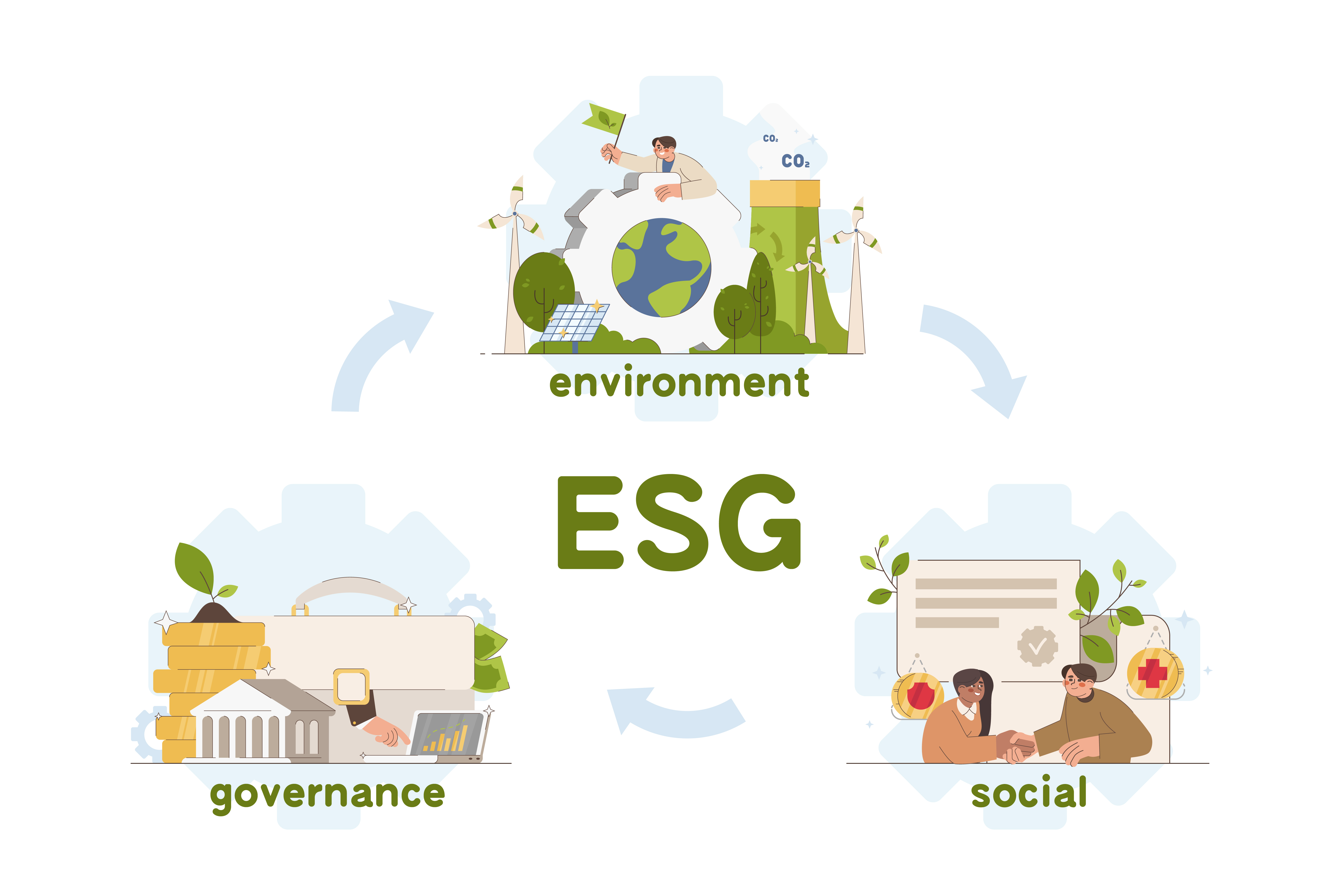ESG Reporting – Who is Affected?
When the European Union introduced CSR policy over a decade ago, it quickly became apparent that it was not a very efficient tool for monitoring non-financial activities. Today, there is increasing talk about ESG reporting for sustainable development. What does ESG change and who does it concern?
When the European Union introduced CSR policy over a decade ago, it quickly became apparent that it was not a very efficient tool for monitoring non-financial activities. Today, there is increasing talk about ESG reporting for sustainable development. What does ESG change and who does it concern?
ESG Reporting – Introduction and Definition
ESG reporting stands for Environment, Social, and Governance. The origin of ESG, similar to the previously implemented CSR (Corporate Social Responsibility), aims to encourage companies to adopt sustainable development practices. Unlike the previous system, however, ESG introduces standardized rules that allow for the comparison of actions taken by different companies in the mentioned areas.
The principles of ESG reporting arise from the CSRD 1 (Corporate Sustainability Reporting Directive) enacted in December 2022. Currently, it only applies to the largest companies, but over time its scope will include more entities. Since the ESG report is mandatory, and there are severe penalties for failing to meet these obligations, it is crucial for entrepreneurs within the scope of the new regulations to start collecting necessary information and implementing changes in their companies now.
ESG Reporting – Importance and Goals
The primary goal of the ESG policy is to ensure transparency in each of the three areas mentioned above, which are crucial for the operation of companies. This is important not only from a compliance standpoint. Fulfilling the environmental, social, and governance-related objectives also helps build strong relationships with stakeholders who believe it is worth investing in a company that is a responsible business partner.
To enable an objective assessment of actions taken under ESG, the new regulation introduces the concept of ESG indicators. These can be quantitative or qualitative and pertain to areas such as:
- In terms of environment:
- Energy consumption from renewable and non-renewable sources;
- Waste production;
- Greenhouse gas emissions;
- Environmental compliance;
- In terms of social and employment:
- Employment equality policies;
- Supply chain management;
- Employment safety;
- Team diversity (ethnic, gender, and age);
- In terms of corporate governance:
- Business risk management;
- Relations between company bodies and business ethics;
- Corporate responsibility.
Reporting follows the European Sustainability Reporting Standards (ESRS) adopted in July 2023. This means the end of choosing a reporting system convenient for the company, which was one of the issues with CSR and led to the risk of greenwashing, i.e., actions that were only seemingly "green."
By using renewable energy sources, balancing energy, or entering into Power Purchase Agreements (PPA), an entrepreneur not only increases business efficiency but also meets ESG goals in the environmental part.

ESG Reporting Obligation – Who is Affected by the Regulations?
The requirement to submit ESG reports is being introduced gradually and currently applies only to listed companies, i.e., those present on the stock exchange. Initially, the reporting obligation concerns companies employing at least 500 people, provided that:
- The balance sheet total exceeds PLN 85 million, or
- Annual revenues exceed PLN 170 million.
The first report is to be submitted in 2025, but it will concern the year 2024. This means that information for the report needs to be collected now.
From 2026 onwards (with the first report covering the year 2025), the reporting obligation applies to companies that meet at least 2 of 3 criteria:
- Employ at least 250 employees;
- Balance sheet total exceeds PLN 85 million;
- Annual revenues amount to at least PLN 170 million.
In 2027, companies listed on the stock exchange that:
- Employ a minimum of 10 employees;
- Show a balance sheet total exceeding PLN 1.5 million;
- Achieved revenues over PLN 3 million;
will submit a report for the previous year. In this case, meeting 2 out of 3 criteria is sufficient. Check when your company will be subject to ESG reporting obligations and start gathering essential information as soon as possible.
ESG Reporting and Corporate Social Responsibility
ESG is sometimes limited to corporate social responsibility, but this is a significant simplification. While ESG includes the philosophy previously implemented by CSR, it also combines ecological aspects and management of the company's structure, whereas CSR often focuses on charitable, philanthropic aspects and building a positive company image.
It should also be remembered that CSR concerns a relatively narrow group of entities, such as banks or insurance companies, whose scale of operations is so large that they would already need to prepare for ESG reporting. For all other market participants, implementing CSR is entirely optional. The new regulation covers a much broader range of companies. An additional difficulty was the lack of unified criteria for evaluating actions taken under CSR and the resulting occasional audits.
Ignoring the new ESG reporting requirements can lead to a loss of public trust and competitiveness, as well as hindered access to debt financing.
ESG Reporting and Sustainable Development – Contemporary Challenges and Trends
New ESG reporting standards present completely new challenges for entrepreneurs. First, it is necessary to determine what indicators should be measured. This requires identifying the scope of data collected during the financial year. The scope of the report depends not only on the scale and profile of the business but also on stakeholders' expectations and relations with them.
Currently, ESG recipients face a dilemma on how to aggregate and manage data for the report. There are several strategies in this regard. The simplest, although not necessarily cost-effective, is to outsource the entire task to an external law firm or auditing company. Data can also be analyzed independently, although especially for large companies, it is recommended to use Business Intelligence or Big Data tools. This way, entire data clusters can be efficiently analyzed.
ESG activities must be fully transparent to provide the market with reliable information about practices undertaken in this area.
Currently, ESG reporting raises many questions, and not all of them have clear answers yet. However, if you want to improve your environmental indicators, we can help you. Reo.pl is an experienced provider of green energy. By using renewable energy sources, you stabilize your business, take care of corporate energy security, and meet compliance requirements.
1. https://eur-lex.europa.eu/legal-content/PL/TXT/?uri=CELEX%3A32022L2464






